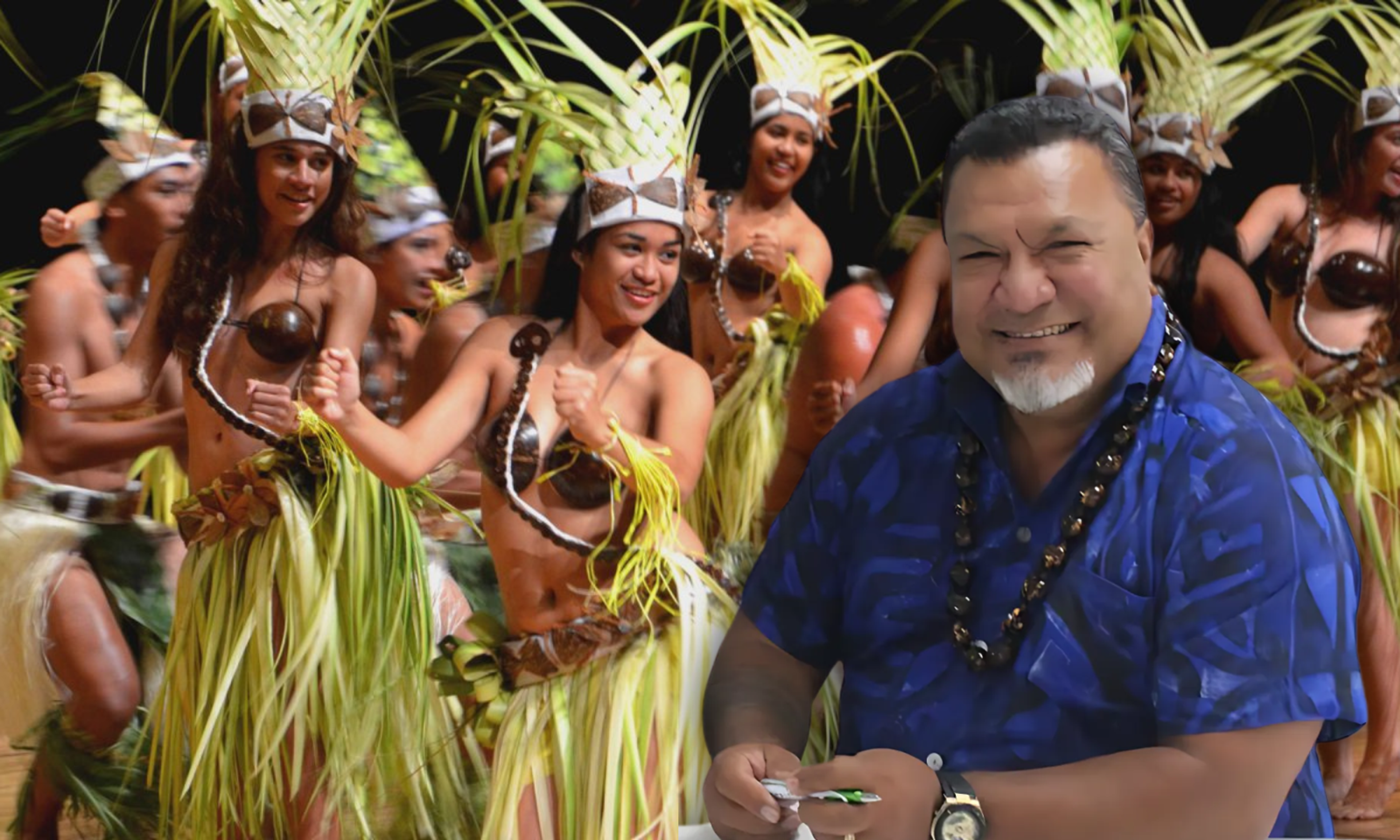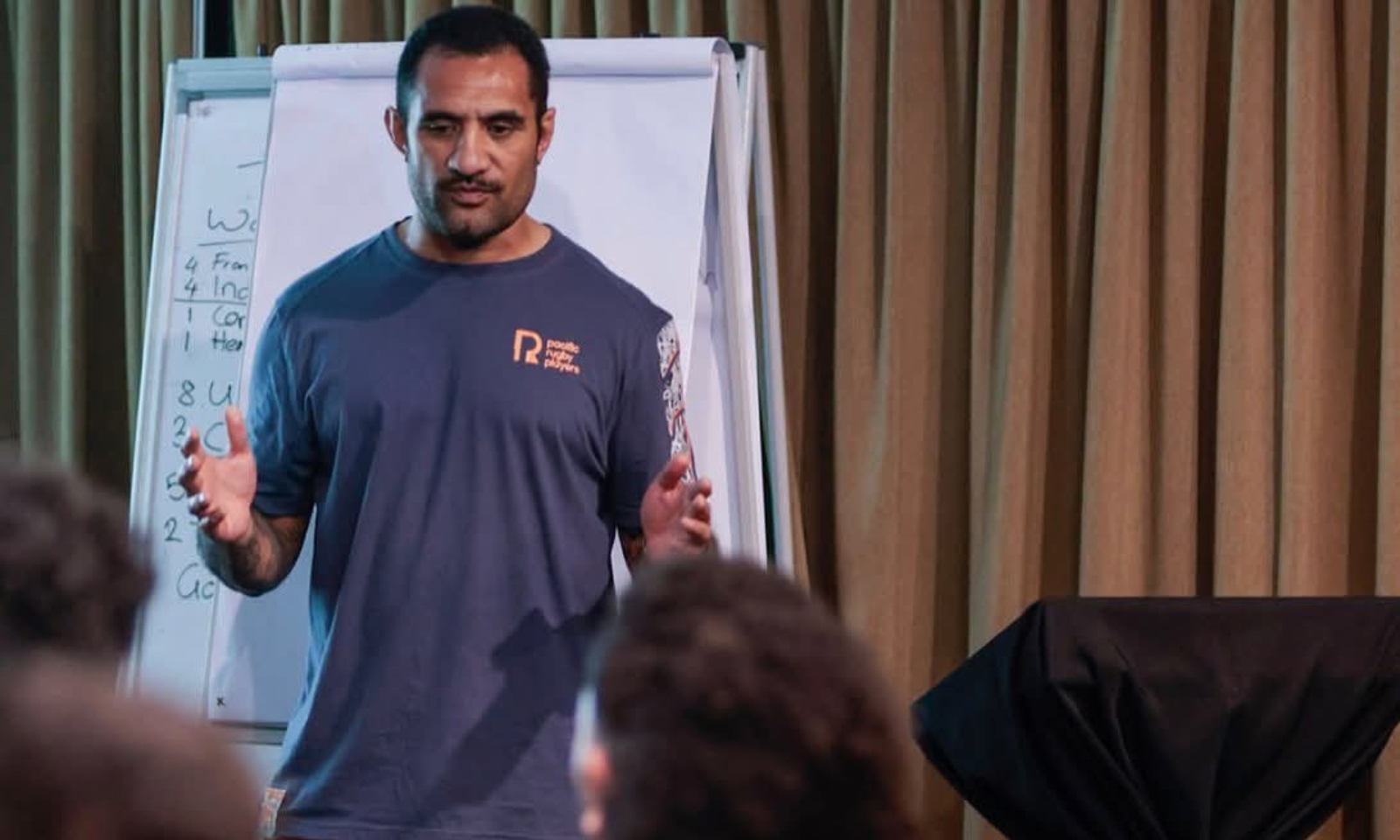

A brotherhood above all else. The Pacific Legends rugby team for July 2025.
Photo/South Seas Healthcare
It's Pacific brotherhood on and off the field
A group of former Pacific rugby players reunited in Auckland last week for a special charity match.



Young talents set to shine at Te Maeva Nui

Calls for culturally grounded housing solutions amid homelessness crisis



George 'Fiji' Veikoso leaves lasting legend of heartfelt music and cultural influence - fans

Young talents set to shine at Te Maeva Nui

Calls for culturally grounded housing solutions amid homelessness crisis

Led by former international player Hale T-Pole, the Pacific Legends initiative is part of a broader effort to support the mental well-being of retired Pacific athletes.
It took some time to arrange for the team to face the Classics, a squad of former New Zealand Rugby representatives, as the curtain-raiser to the Sāmoa versus Scotland game. But the commitment to support one another was evident.
In an interview with PMN News Multimedia Journalist, Atutahi Potaka-Dewes, T-Pole says, “Tonight is their happy place. They understand each other. They know the rollercoaster that comes after playing the good, the bad, and the very hard times.”
The match at Eden Park followed an eight-week health challenge and brought together over 30 former players who, according to T-Pole, may have walked away from the field but still crave the camaraderie, structure, and purpose of team sport.
“We talk a lot about mental health and the need to speak up, but what we really want is for them to share... share their challenges, their journeys, their successes.
“It’s not just about depression or anxiety. It’s about helping someone figure out the next step in life... whether that’s a job, education, or just finding purpose again.”
T-Pole says there’s no one-size-fits-all solution to mental health. He advocates for flexibility and encourages embracing small victories over high expectations.
“If we can do two per cent, a little bit… trying to crack that barrier, we’ll jump on it. And so far, as you can see tonight, they’re so happy just seeing each other because they know what each other goes through after playing… there’s a rollercoaster.”
The game at Eden Park was the result of weeks of physical training and mental reconnection. Players were challenged to take part in gym sessions, post their workouts, and track their progress. But T-Pole says the physical side was just a vehicle to open deeper conversations.
Listen to Hale T-Pole's full interview below.
“In our Pacific communities, we often don’t open up. So sometimes you go in a different way - don’t start with mental health. Start with something positive. Talk about jobs, family, and future goals. That’s how we get to the heart of it.”
A study by BMJ Open Sport & Exercise Medicine last year, which surveyed rugby players on their mental health and well-being, found that most players reported a positive impact on their mental health and well-being through rugby.
But elite ex-players reported higher levels of psychological signs of depression, anxiety, and irritability.
As a former player, T-Pole acknowledges the mixed emotions of returning to the field after retirement.
“.. they [players] all understand each other, they all understand the challenges… the happy, the sad times, what they go through after playing.”

Hale T-Pole champions mental health and well-being for retired Pacific rugby players. Photo/Facebook
The initiative resonated with players funding their own travel from Wellington, Nelson, and Palmerston North to participate.
The event also served as a show of support for the Manu Sāmoa national team, who played against Scotland following the legends’ match.
Ultimately, the message from T-Pole and his team is clear: mental health isn’t a side issue in sport - it’s central. By reconnecting old teammates, opening space for honest conversations, and offering new paths forward, this campaign aims to tackle one of the toughest challenges in Pacific sport.
“We’ll drop everything to support a brother going through something,” T-Pole says. “That’s what tonight is about.”